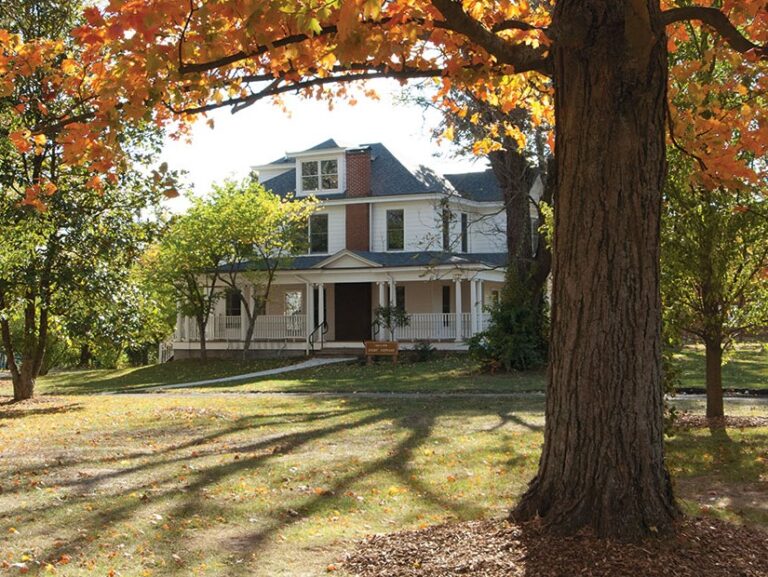Located in the “white house” next to Presser Hall at the far end of the campus, the Admissions Office is busy throughout the year promoting the College, recruiting prospective students and processing applications. The Office of First Year Experience receives admitted students from the Admissions Office, and guides them towards a stable and efficient college life. Hence, these two offices constitute a major part of the bridge-in system of Berea College which assures that the incoming students get the assistance they need during their transition into college life. Everything starts with a student somewhere in the world who decides to apply to Berea College. For that to happen, the student needs to be informed about the benefits he/she enjoys from attending the College; a responsibility which partly falls on the College’s admissions counselors.
Currently, the Admissions Office has seven operating admissions counselors. According to Luke Hodson, Director of the Admissions Office since 2005, these counselors work throughout the Appalachian region, stretching from southeast Ohio and West Virginia to north Alabama and north Georgia. Accordingly, during their recruitment travels, which primarily take place in September and October, admissions counselors visit high schools and attend college fairs to meet with prospective students. Then, in collaboration with high school guidance counselors, they find prospective students who meet Berea’s qualifications and arrange group and individual meetings with them. Once the students begin the application process, they come to the college campus to have a required admission interview. If prospective students are unable to come to Berea for an interview, the admissions counselors work hard to conduct the interview on their high school campus. According to Luke, the interviews help the College to learn more about the students through their own responses, and let the students learn about the college by virtue of the questions asked.
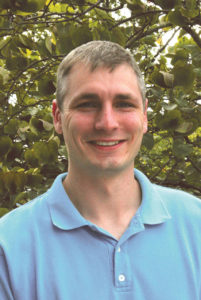
Even though students are given the option of writing personal statements in their applications, Luke asserts that an interview reflects a clearer picture of who the student is than a thoroughly revised essay would. Even though most prospective students are enthusiastic about going to college, making the ultimate decision to attend one can prove to be a challenge. “A part of the challenge is the rising costs to attend college, which brings a question on whether college education is worth the money paid for it. So, every college is put in a position where we have to provide students with enough information on why it is worth paying this amount of money,” says Luke. However, a guarantee that no student pays tuition in Berea College removes a considerable financial burden off the students’ and families’ shoulders. Admissions counselor Ashely Offutt says, “The smile on the faces of a family when you tell them that their student will not be responsible for paying tuition is very pleasant.”
Though admissions counselors play an important role in the recruitment and admissions process, Luke points out that they are not the only piece. Once a student considers applying to Berea College, the office has several systems that guide prospective students through the appropriate steps of coming to Berea. For example, the campus visits team ensures that students who visit the campus get to experience the aspects of the college in which they have expressed the most interest. The Admissions Office and Office of First Year Experience constitute a major part of the bridge-in system of Berea College, which assures that the incoming students get the assistance they need during their transition into college life.
According to Rebecca Parrish, Coordinator of Campus Visits and Events, these visits take place throughout the year with October being the busiest month. A typical visit lasts about two and a half hours, and involves an informational video, an information session for parents and guests, personal conversations between an admissions counselor and students, and a tour of the campus. Prospective students also spend time with current students and get answers to their questions about what it is like to be a student on campus.
Rebecca states that participating in the campus visits offers a crucial contribution to many student’s successful assimilation into college life. “We throw a lot of information at them during their visits but we also hope that, if they become a student here, the information we share helps them to start their college life. For example, because we talk about the Convocation Program during visits, it is something students would already be familiar with when they start their academic year,” she says.
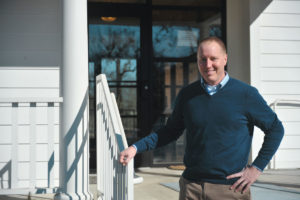
Once the incoming students have received their letters of admission around January, the Office of First Year Experience takes up the responsibility of making sure each student’s transition to college life is smooth and successful. The coordinator of the office, Chris Lakes, explains the activities of the office as follows: “From the moment they send in their deposit, we begin communicating with them about preparing to attend Berea. Therefore, we really try and set a context for the students about what the college experience is going to be like before they even arrive.” Accordingly, the office engages prospective students through sites like Facebook and Twitter where they can start informal communications with fellow classmates, upper-class student leaders and even faculty and staff. The students will also pass through official systems like the online orientation in May, where they are introduced to important features like the general education program, financial aid, student life, and other aspects that are going to be the foundation of their first year.
From the moment they send in their deposit, we begin communicating with them about preparing to attend Berea. Therefore, we really try and set a context for the students about what the college experience is going to be like before they even arrive.
When domestic students arrive, the office holds a collective four-day orientation. Starting with the quite memorable move-in day, where student orientation team members welcome and help students settle in their dorm rooms, the office conducts several sessions to help students form a community and learn the culture and commitments of the college. According to Chris, “We want students to be in several cohorts such as advisee groups, labor positions and the residence hall floors. In that way, we help them build relationships with other students. Culturally, we try to do different activities to introduce them to what Berea College is about. For example, we have an All Peoples of the Earth worship service where we introduce them to Berea’s unique Christian commitments and the diversity of the institution.”
In October, the First Year Experience office organizes the first year class meeting, where important issues such as registration for spring classes, labor, and co-curricular activities are discussed. According to Chris, though, this is the time the office stops being the only one responsible for first year experience; starting from this point, the entire campus becomes the first year experience.
Currently, the college has a model in which the GSTR 110 faculty are the first year students’ academic advisors, which is done intentionally so that students can have a constant contact with advisors in a small cohort and develop their academic planning. “In those classes, we have teaching assistants/peer leaders working specifically to help the students get connected and find resources. We also have the residence life program, where residential assistants work with them to develop a sense of community in the residence halls and connect their learning in the classroom to the rest of their Berea experience,” he says. The Office of First Year Experience guides the efforts of all the offices and focuses attention on the needs of the first year students. As Chris puts it, “Our office is just a hub in the wheel that tries to connect all of those efforts and give the students a more holistic college experience.”
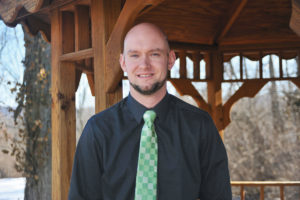
One of the programs that the Office of First Year Experience arranges for first year students is the Emerging Scholars Program (ESP), which is a Student Support Services grant funded program that comes through Academic Services. Every year, according to Jamie Boggs, Project Director of ESP, the program recruits around seventy incoming first-generation students from areas identified to have low retention rates at Berea College. Demographically, the students from these areas, which are usually locations that are significantly below the national economic average, represent a broad cross-section of Berea College students. Hence, ESP’s support to these students can be taken as a support to the overall college community. In general, ESP’s primary mission is to increase the retention and graduation rates of Berea College students from particularly low socio-economic areas. “We help our students to get the most out of their Berea College experience and to find success in whatever endeavors they pursue,” concludes Jamie.
Even though the First Year Experience office is already making a significant contribution to the success of first year students, it is constantly seeking ways to improve its services. “We are always evaluating our programs to make sure students are getting what they need, and looking for new ways to help with their transition. Currently we are hoping to pilot a summer bridge program for students, create more living-learning community spaces in our residence halls, and expand our services to families to try and improve our communication with them throughout the year, just to name a few,” says Chris.
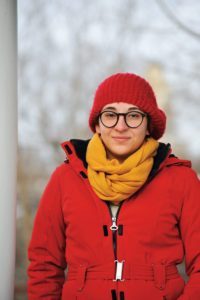
Even though the feedback might vary among students with different backgrounds, most agree in the fact that Berea’s efforts effectively bridged them into college life. Sheyla Finkelshteyn ’17, a first year student from Uzbekistan, states that thanks to the bridge-in program the application and admission process were not difficult to follow. “Even though I had questions, I always got quick and precise answers,” she says. As for the orientation and other first year experience programs, Sheyla describes them as helpful and informative even though her long distance travel and the sudden plunge into a new environment had made the process a bit overwhelming.
For most high school seniors, coming to college is a significant change of life-style, which they could never be fully prepared for until they are immersed in the experience. The responsibility of the bridge-in offices and programs is, therefore, to ensure that the students are able to cope with this sudden change, and achieve their full potential.
Even though I had questions, I always got quick and precise answers.


